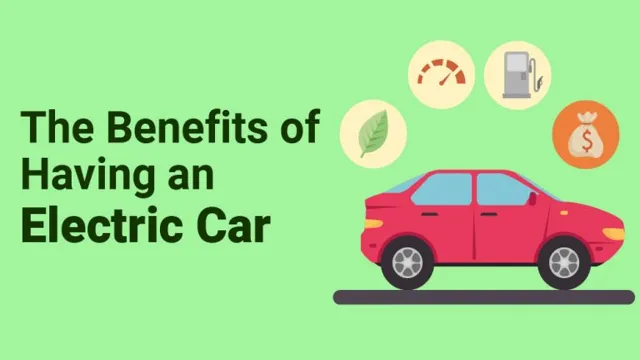Driving Green: Why Benefit in Kind Rates for Electric Cars are a Game Changer!
Electric cars have increasingly become a popular choice for drivers due to their eco-friendliness and financial benefits. However, choosing an electric vehicle can also have an impact on your taxes. If you’re considering a company car or have one already, then you’ll need to know about Benefit in Kind rates.
But what exactly are Benefit in Kind rates, and how do they relate to electric cars? This complete guide will delve into the details of these rates and explain how opting for an electric car can bring financial advantages. We’ll explore everything from the current Benefit in Kind rates for electric cars to how driving an electric vehicle can lower your tax bill. Moreover, we’ll look at the environmental benefits of these cars and how they contribute to sustainable living.
By the end of this guide, you’ll have a more comprehensive understanding of Benefit in Kind rates and electric cars, and how you can make an informed decision that is both eco-friendly and financially savvy. So, let’s dive in and explore the electrifying world of electric cars and Benefit in Kind rates!
What Are Benefit In Kind Rates?
If you’re considering buying an electric car for personal or business use, it’s important to understand the benefit in kind rates attached to such vehicles. Benefit in kind is a tax on the value of benefits employees receive from their employers, such as the use of a company car. For electric cars, these rates are generally lower than for traditional petrol or diesel vehicles, due to their lower emissions and environmental impact.
This means that employees who use an electric car for work purposes can expect to pay less tax on the benefit in kind than they would for a conventional car. In fact, from April 2021, the benefit in kind rate for electric cars with zero emissions has been reduced to zero percent, making them an even more attractive option for businesses and individuals. This is encouraging more people to consider electric cars, not only for the benefits to the environment, but also for the financial savings they can provide.
Explanation of Tax on Employee Benefits
When it comes to employee benefits, it’s important to understand that there may be tax implications. Benefit in kind rates are the rates at which certain benefits, such as company cars or health insurance, are taxed. These rates vary depending on the type of benefit and the level of income of the employee.
Essentially, an employee who receives a benefit in kind is essentially receiving additional income, which is subject to taxation. It’s important to note that not all benefits are subject to these rates, but it’s always a good idea to check with your employer or a tax advisor to ensure that you understand any potential tax implications. Overall, understanding benefit in kind rates can help employees make more informed decisions about their compensation packages and avoid any surprises come tax time.
Benefit In Kind Rates for Electric Cars
Electric cars are becoming increasingly popular as people strive to reduce their environmental impact whilst still being able to travel in style and comfort. With this rise in popularity comes a rise in questions about the benefits of driving an electric car, and one of the most common queries is regarding benefit in kind rates for these vehicles. Put simply, a benefit in kind tax is the tax you pay on any benefits you receive from your employer that are not included in your salary, such as a company car.
The good news for those who drive electric cars is that as of April 6th 2020, the benefit in kind rates have been reduced to 0%. This means that there is no tax on the value of an electric car as a benefit in kind, making it a highly desirable option for employees who may have previously been put off by high tax rates. This is a fantastic incentive for those considering the switch to an electric car, both for the environmental benefits and for the financial benefits it brings.
List of Benefit In Kind Rates for Electric Cars
If you’re considering purchasing an electric car, it’s worth knowing about the Benefit in Kind (BIK) rates that apply to them. BIK is the tax that is paid on any perks that an employee receives alongside their salary, such as a company car. Fortunately, electric cars have lower BIK rates than petrol or diesel vehicles, due to their low emissions and better fuel efficiency.
In fact, as of April 2021, the BIK rates for electric cars are set at 0% until 2025, meaning that employees won’t have to pay any tax on the vehicle they drive. After 2025, the BIK rates will gradually increase, but they will still be lower than the rates for traditional cars. Overall, this makes electric cars a more affordable and sustainable option for both employers and employees.
Comparison with Rates for Non-Electric Cars
When it comes to calculating Benefit in Kind (BIK) rates, electric cars have a distinct advantage over non-electric cars. BIK rates are calculated by taking a percentage of the car’s list price and multiplying it by the employee’s tax rate. For non-electric cars, the BIK percentage is based on CO2 emissions.
The higher the CO2 emissions, the higher the BIK percentage. However, for electric cars, the BIK percentage is significantly lower – for example, in the UK, the BIK rate for electric cars in the 2021/22 tax year is 1% compared to 20% for non-electric cars. This means that electric car drivers can enjoy significantly lower tax bills compared to their non-electric counterparts.
Not only does this make electric cars an attractive option for employees, but it also incentivizes companies to switch to a more environmentally friendly fleet. Overall, the more electric cars on the road, the better for both the environment and our wallets.
Why Electric Cars Have Lower Benefit In Kind Rates
If you’re in the market for a new car and environmentally-conscious, an electric car might be the right choice for you. One of the most significant benefits of electric cars is their lower Benefit in Kind rates. In the UK, the benefit in kind rates for EVs are currently much lower than for traditional cars.
This is because electric cars produce zero emissions, and therefore, the government wants to incentivize drivers to make the switch to more eco-friendly vehicles. With conventional gasoline or diesel cars, drivers have to pay higher benefit in kind rates as these cars produce harmful pollutants that contribute to air pollution and climate change. By choosing an electric car, not only will you be helping the environment, but you’ll also save money in the long run by paying lower tax rates.
Environmental Benefits of Electric Cars
Electric cars are becoming increasingly popular due to their environmental benefits. By emitting little to no harmful pollutants, they contribute to a cleaner atmosphere and reduce carbon emissions. However, despite these positive impacts on the environment, they have lower Benefit In Kind (BIK) rates compared to conventional cars.
This is because the initial cost of electric cars is higher, which offsets the environmental benefits in the eyes of the government. Additionally, the production of electric car batteries requires a significant amount of resources and energy, which can also be detrimental to the environment. However, it is still important to consider the long-term benefits of investing in electric cars, as they can ultimately help create a more sustainable future.
By choosing to drive an electric car, individuals can make a positive impact on the environment and contribute to a greener future.
Government Incentives to Promote Electric Cars
Electric cars have become increasingly popular in recent years, and as a result, the government has implemented several incentives to promote their usage. One significant incentive is lower benefit-in-kind rates for electric cars. Benefit-in-kind rates are a tax applied to employees who receive a company car for personal use.
The amount of tax owed depends on the value of the car, its carbon dioxide emissions, and whether it runs on petrol or diesel. Electric cars have lower carbon dioxide emissions, making them more environmentally friendly and affordable. As a result, they receive a lower benefit-in-kind tax rate, making them a more attractive option for companies looking to provide company cars to their employees.
This is a great incentive for people to switch to electric cars and a step towards a greener future.
How to Calculate Benefit In Kind Rates for Electric Cars
Benefit in kind rates for electric cars are an important consideration for anyone looking to purchase or lease an electric vehicle for business use. The benefit in kind rate is the amount that an employee or director pays in income tax and national insurance contributions on the taxable value of the vehicle provided by their employer. To calculate the rate for an electric car, you need to know its list price, CO2 emissions, and the date it was first registered.
For zero-emission electric cars, the rate is 0% for the current tax year and the following two tax years. From April 2023, the rate will increase to only 1% for the next two tax years. This makes electric cars a very attractive option for company car drivers, as they can save a significant amount of money on their tax bills.
Furthermore, the reduced emissions from electric cars can help to reduce a company’s carbon footprint, leading to further environmental benefits.
Step-by-Step Guide
Calculating benefit in kind rates for electric cars can be a bit confusing, but it’s essential knowledge for anyone looking to purchase or lease one. There are a few key things to consider when calculating the benefit in kind rate, such as the car’s list price, CO2 emissions, and fuel type. To start, you’ll need to know the car’s list price, which is the invoice price plus any options and accessories.
Then, determine the CO2 emissions for the car, as this will affect the benefit in kind rate. Electric cars have very low CO2 emissions, which means they are subject to lower rates than petrol or diesel cars. Finally, you’ll need to know the fuel type, which will determine the percentage of the list price that is subject to the benefit in kind rate.
For electric cars, this is currently set at 0%, meaning there is no benefit in kind tax to pay. By following these steps, you can easily calculate the benefit in kind rate for your electric car and make an informed decision about your purchase or lease.
Conclusion and Final Thoughts
In conclusion, the benefit in kind rates for electric cars provide a double whammy of benefits: not only do they help reduce our carbon footprint, but they also offer lower tax rates for individuals or companies who choose to invest in them. So, not only are you making a positive impact on the environment, but you’re also able to enjoy some potential financial savings. It’s a win-win situation that shows that sometimes doing the right thing can also mean doing the smart thing.
“
FAQs
What are the current benefit in kind rates for electric cars?
As of April 2021, the benefit in kind rates for electric cars is 1% for the tax year 2021-22.
How are benefit in kind rates calculated for electric cars?
The benefit in kind rates for electric cars are calculated based on the car’s list price and the vehicle’s CO2 emissions.
What is the benefit of choosing an electric car for a company vehicle in terms of benefit in kind rates?
Choosing an electric car as a company vehicle can mean lower benefit in kind rates, as they typically have lower CO2 emissions than petrol or diesel vehicles.
Are there any changes expected to the benefit in kind rates for electric cars in the near future?
Yes, the benefit in kind rates for electric cars are set to increase to 2% in the tax year 2022-23, before reducing back down to 1% in the following tax year.


